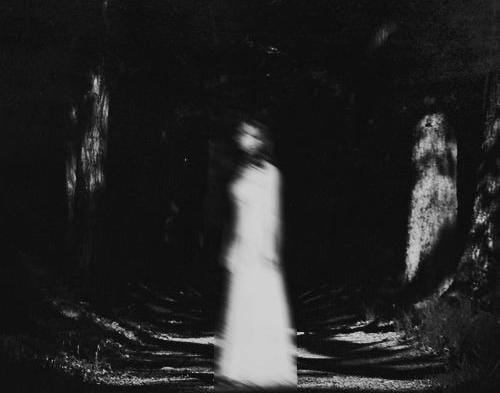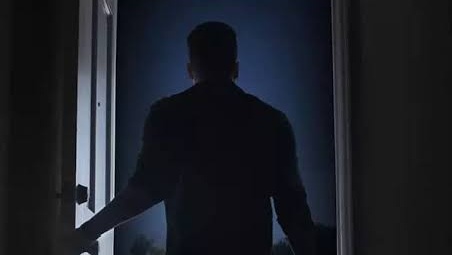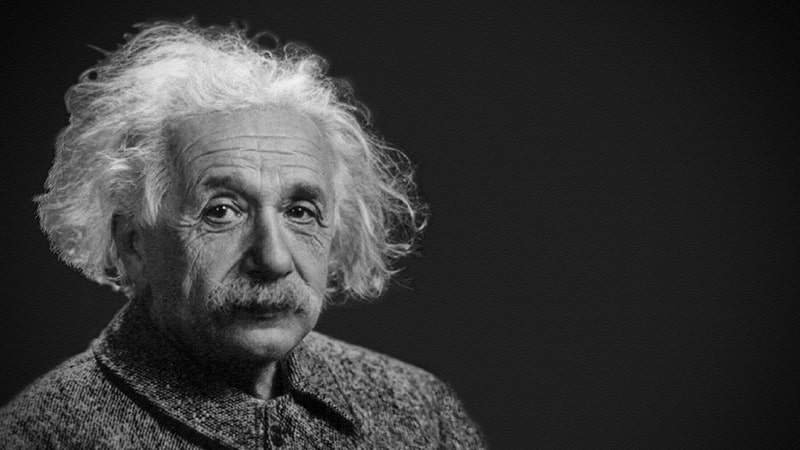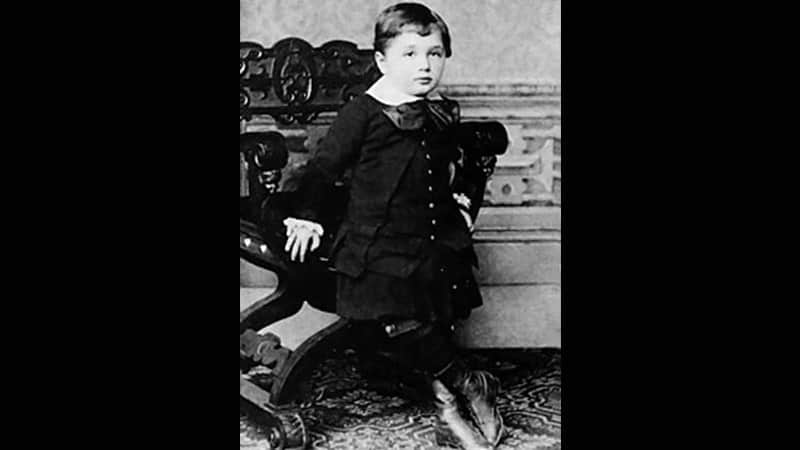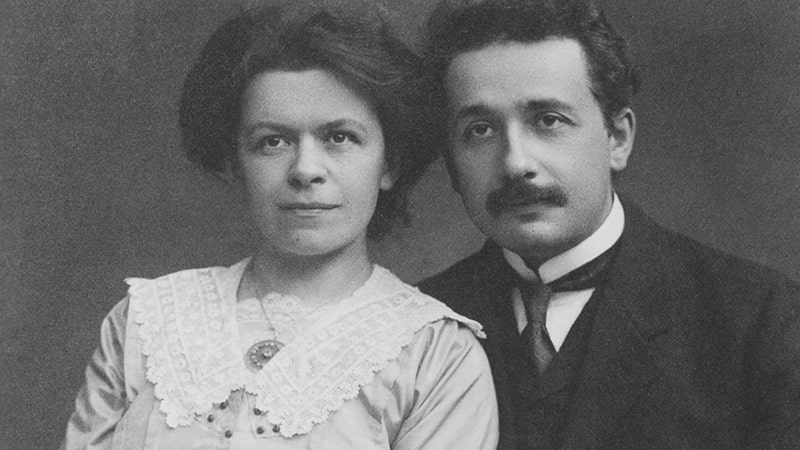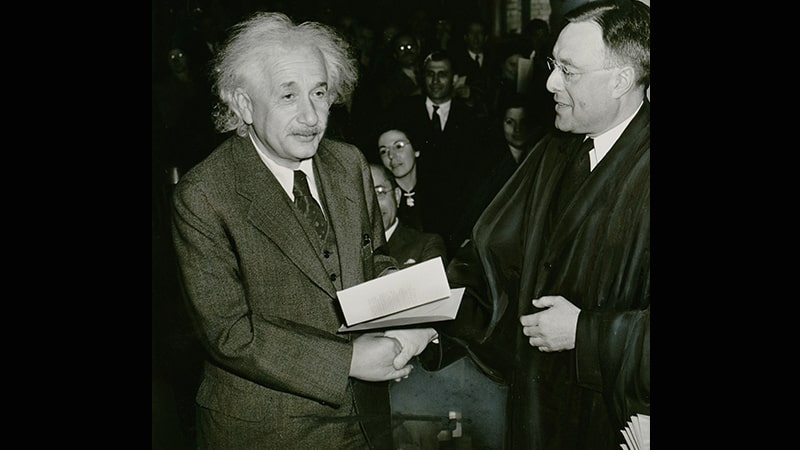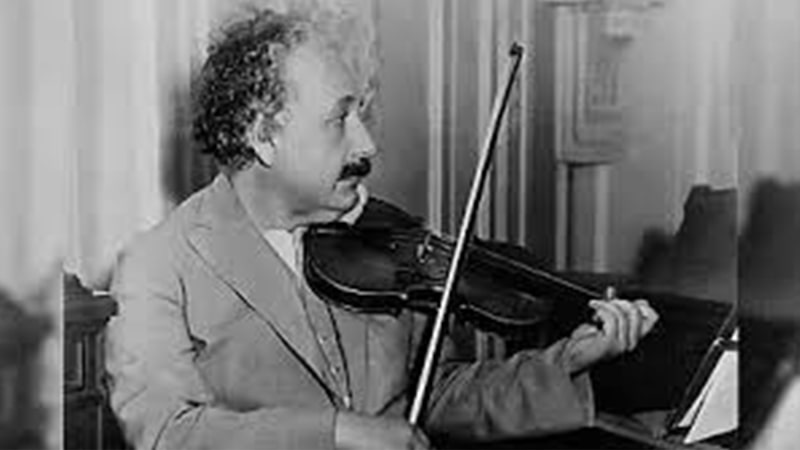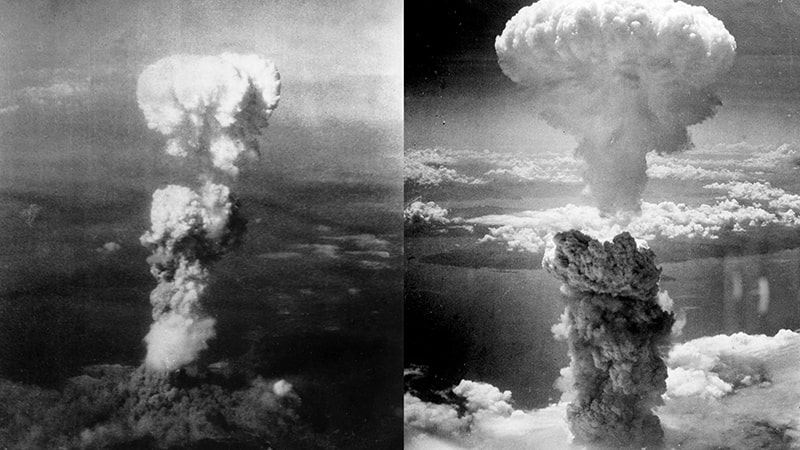Biography of Steve Jobs, the Founder of Apple Who Has Extraordinary Ambition
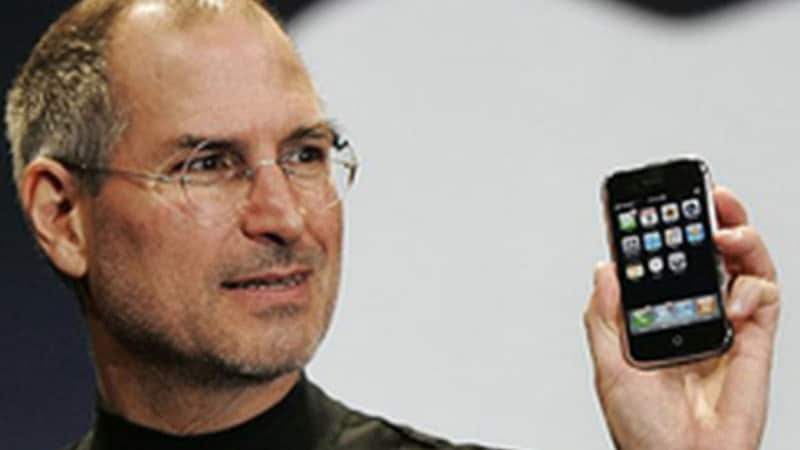
Source: Wikipedia.org
Everyone may know the name of Steve Jobs, the former CEO of Apple who is now dead. However, not everyone knows about the life story of this man who once worked as a bottle collector. If you are curious about everything about him, keep reading the biography of Steve Jobs which we present in the following article!
You certainly know the company Apple Inc., right? Well, we will present the biography of Steve Jobs, who is the former president director and founder of the world famous company.
After reading this biography of Steve Jobs, you will know that he was not only a high-ranking Apple executive. He also held a position as an executive officer at Pixar Animation Studios.
Being an important figure in the industry, Steve Jobs did not get it with connections or because of his parents. He really started his career from the ground up until he was finally able to achieve success.
So, are you curious about the personal life and actions of this man from the United States? If yes, then you must listen to the description that we present below!
Personal life
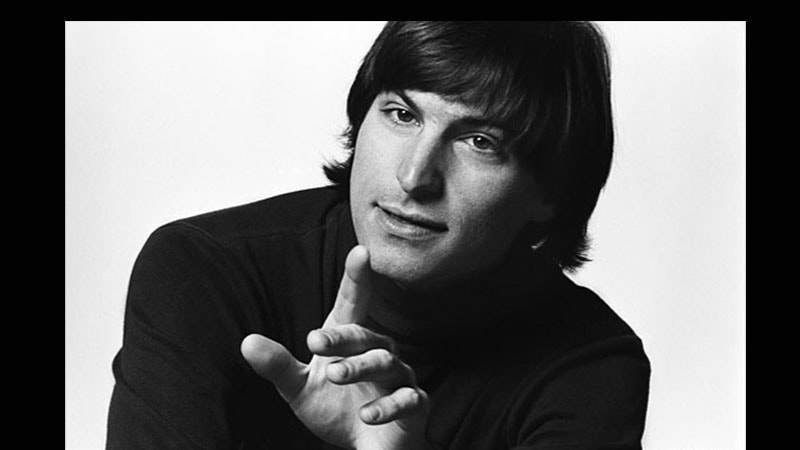
Source: Thehustle.co
Maybe you just know that Steve Jobs was an accomplished and intelligent businessman. Well, if you want to know about his childhood, education, and love story, keep reading Steve Jobs' biography which discusses his personal life below!
1. Steve Jobs' Childhood and Education
Steven “Steve” Paul Jobs was born in San Francisco, California on February 24, 1955. His biological father was Abdulfattah Jandali, a Syrian professor of political science. Meanwhile, his biological mother is Joanne Simpson, an American speech language pathologist.
However, Steve was not raised by his biological parents, but by Paul and Clara Jobs, who adopted him as a child. Besides Steven, Paul and Clara Jobs also adopted a daughter who was later named Patti.
Steven through his middle and high school years at Cupertino Junior High School and Homestead High School which is also in Cupertino, California, United States. During his high school years, he frequently attended lectures at the Hewlett-Packard Company in Palo Alto, California. Not only that, Steven was eventually also hired at the company as a summer employee with his friend, Steve Wozniak.
In 1972, Steven graduated from high school and enrolled at Reed College, Portland, Oregon. After studying for a semester, Steven decided to leave and work by returning cola bottles to earn money. For business, he often came to a temple to get food that was distributed free of charge.
In 1974, Steve Jobs returned to his hometown in California and regularly attended the Homebrew Computer Club with Wozniak. Apart from studying with the computer club, he also works as a technician at Atari, a company that makes video games. Steve did the job not without reason, he wanted to save money so he could take a spiritual trip to India.
Finally Steve's hard work paid off. He was finally able to leave for India to visit Neem Karoli Baba with Daniel Kottke, his friend from Reed College. After returning from India, he changed his appearance by shaving his head to bald and wearing typical Indian clothes. In fact, Steve Jobs also firmly embraced Buddhism.
2. Fool Friends
After returning from a trip to India, Steve returned to continue his work as a technician at Atari. At that time, he was assigned to create the circuit board game Breakout. The company promised one hundred US dollars for every TTL chip that Steve was able to remove from the game machine.
Then, Steve invites Wozniak to work together to deal with the chip and promises to split the wages earned in half. After hard work, they were finally able to reduce by 50 chips and Steve was given a salary of 5,000 US dollars.
However, he cheated by telling Wozniak that Atari only gave him $700. So, Wozniak only received half, which is 350 US dollars.
3. Steve Jobs Love Scandal Before Marriage
The love story of big figures always attracts attention, including the love scandal of the former Apple CEO which seems to also be included in this Steve Jobs biography. Yes, in his youth, Steve Jobs was classified as a teenager who often changed lovers.
According to some sources, Steve Jobs was in a relationship with a woman named Joan Baez, Diane Keaton, and a book writer named Lisa Birnbach. However, of all his ex-girlfriends, the most memorable is probably Chrisann Brennan. Yes, in a book called The Bite in The Apple: A Memoir of My Life With Steve Jobs, Brennan reveals the story of his life with Steve Jobs for five years.
In 1972, Steve and Brennan had a love affair until they finally decided to live together in the Cupertino area. Initially, the owners of the house they rented objected to renting out their house. However, with his way, Steve managed to convince the owner of the house.
According to Brennan, when they lived together, Steve had shown his desire to lead by choosing the front room. He also showed selfishness when he decided to occupy a different room with his girlfriend, but ended up moving to the same room because the one occupied by Brennan was more spacious.
As the Apple company grew, Steve became more and more selfish and often grumpy. He will be angry just because of small problems such as when the food he ordered did not come immediately.
As time went on, Steve's orientation began to change, by which time he became more comfortable with his designs. Finally in 1977, Brennan parted ways with Steve. When they separate, something unexpected happens, it turns out that Brennan is pregnant. However, Steve did not want to recognize the baby who was born in 1978 as his son.
In fact, he also hurled hurtful words by saying that 28% of men in the United States could father Brennan's baby. As a result, Brennan had to struggle alone to take care of the child until finally in 1983, Jobs underwent a DNA test and it was proven that the child named Lisa Brennan-Jobs was his daughter.
4. Married Life
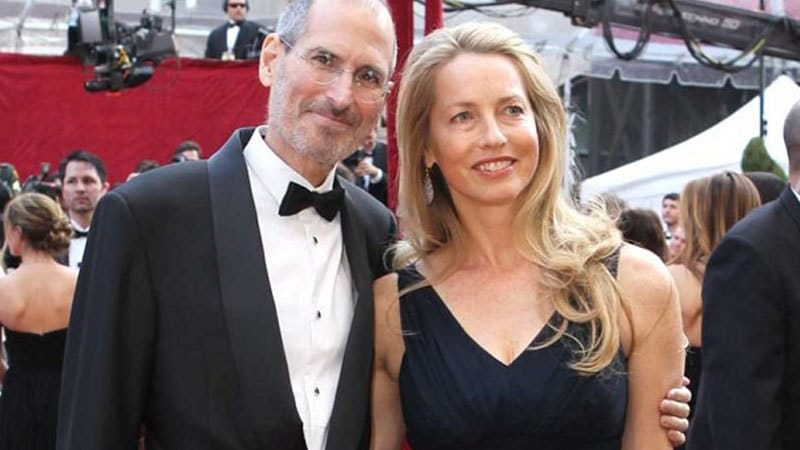
Source: Telegraph.co.uk
After spending his youth with many women, Steve Jobs' love adventure ended when he met Laurenne Powell in 1989 at Stanford University. At first, Steve was shy when he approached Laurenne, who was still a master's student at that time.
However, after thinking hard enough and wondering if it was his last night, Steve finally got up the courage to take Laurenne out to dinner. Since then, they have been in a relationship as lovers until they finally married a Buddhist priest on March 18, 1991 at The Ahwahnee Hotel, California.
Not long after their marriage, in September 1991, Laurene gave birth to their first son, who was later named Reed Jobs. Followed in 1995 and 1998, Laurene gave birth to their second and third daughters with Steve who were later named Erin and Eve Jobs. Steve and Laurenne's marriage relationship lasted for 20 years and ended with Steve's death in 2011.
Career Journey
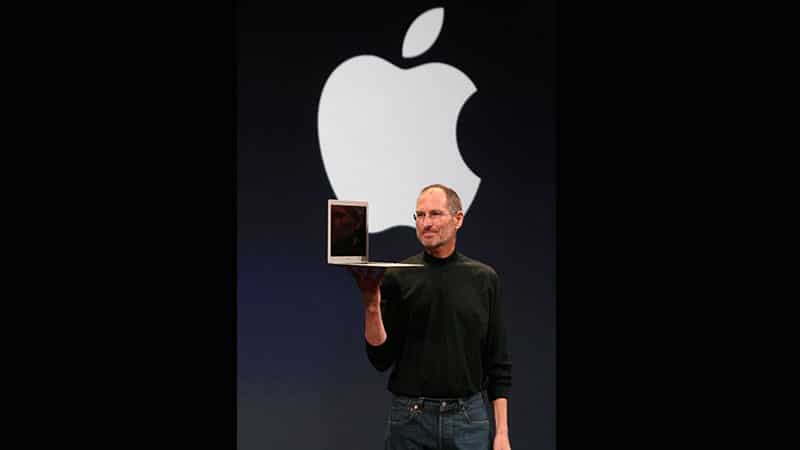
Source: Wikiquote.org
As many people know, Steve Jobs was a former high-ranking officer at Apple and Disney. If you are curious, how did he become a successful businessman who is known to the world, keep reading this Steve Jobs biography!
1. The Beginning of Apple Computer Formed
In 1976, Steve Jobs, Steve Wozniak, and Ronald Wayne founded a company called Apple with funding from Mike Markkula Jr. As the company grew, they recruited Mike Scott from National Semiconductor to become CEO in 1978. However, in the end, the company's condition worsened.
In 1983, Jobs persuaded John Sculley to leave Pepsi-Cola and become the new CEO of Apple. Subsequently, at the annual meeting of Apple shareholders held on January 24, 1984, he introduced the Macintosh to everyone present. Finally, the Macintosh became the first commercially successful small-sized computer with a graphical user interface.
However, towards the end of 1984, a massive industry-wide drop in sales that also took a toll on Apple, shattered his and Sculley's relationship. Then in 1985, following the announcement of massive layoffs, Sculley removed Jobs as Head of the Macintosh Division.
2. Develop NeXT Computer
After his relationship with Apple ended, he began to develop a new computer company called NeXT Computer. Unlike Apple which is marketed to the general public, NeXT is marketed in the scientific and academic fields because it has innovative new technology.
With NeXT, he developed many things, such as an interpersonal computer called the NeXTcube, and an electronic mail system dubbed NeXTMail. According to him, NeXTcube is a computer that can solve various problems that exist in ordinary personal computers. While NeXTMail also achieved success by being one of the first electronic mail that supports graphics and audio.
While developing hardware at NeXT Computer, Jobs was so obsessed with aesthetic perfection that he placed great pressure on the hardware division. Finally, after successfully selling 50,000 machines, in 1993 NeXT turned completely into a software-only company with the launch of NeXTSTEP/Intel.
3. Buying the Forerunner of Disney Pixar
One year after leaving Apple, in 1986, he bought The Graphics Group for 10 million US dollars. The Graphics Group, previously located in San Rafael, California, was later renamed Pixar and relocated to Emeryville, California. At this company, he developed advanced graphics hardware called the Pixar Image Computer.
Good performance apparently does not make this product best-selling in the market. A few years after its creation, then Pixar became famous after collaborating with Disney in producing computer-animated feature films.
The first film that Pixar and Disney collaborated on was Toy Story (1995) which received great acclaim from film critics. After the release of Toy Story, the partnership between Pixar and Disney has also produced animated films with other cool characters, such as A Bug's Life (1998), Toy Story 2 (1999), Monsters, Inc. (2001), Finding Nemo (2003), and many more. The cool thing is, some of the films resulting from this collaboration have won the Oscar for the Best Animated Feature category, you know.
Between 2003 and 2004 when the contract between Disney and Pixar finished, Jobs tried to negotiate a contract extension with Disney's then chief executive Michael Eisner. However, talks about a new contract ended in failure.
In October 2005, Bob Iger who replaced Michael Eisner held talks with Jobs about the fate of the relationship between Pixar and Disney. Then on January 24, 2006, Jobs and Iger stated that Disney would buy Pixar with a 7% stake worth the equivalent of 7.5 billion US dollars.
Thus, Jobs became the largest single shareholder of The Walt Disney Company. This number is even greater than the shares owned by Eisner, which only has 1.7%, and Roy E. Disney, which only owns 1%. After the company merger business was completed, Jobs joined the company's board of directors. Not only that, he also helped oversee the combined business of Pixar and Disney by serving on a special supervisory committee.
4. Back to Apple
In 1996, Apple bought NeXT for $429 million. This decision then brought Steve Jobs back to the company he founded with his friends. De facto, Jobs replaced CEO Gil Amelio who was demoted in July.
During his time as CEO, he worked hard to make Apple profit, including by stopping several projects that were considered less profitable, such as Cyberdog, Newton, and OpenDog. He also changed the licensing program for Macintosh clones so that to keep producing them, the makers had to pay more for it.
Because NeXT had been purchased by Apple, some of the technology of the company which was also founded by Jobs went into Apple products, for example NeXTSTEP which later became Mac OS X. Gradually, Apple showed a rapid increase in sales thanks to Jobs' breakthroughs. Finally at Macworld Expo 2000, he set a new policy by making himself permanent CEO.
In 2007, Apple penetrated into the cellular phone business through the iPhone which has a touch screen display. To meet market demands, he also always tries to innovate his products, because according to him a sophisticated product must also have an attractive design.
5. Resigning as CEO of Apple
Establishing himself as a permanent CEO in 2000, Steve Jobs finally decided to resign in 2011. Yes, this is the end of the career journey of the Apple CEO in this Steve Jobs biography.
However, he stated that he would remain as chairman of the company's board. Unfortunately, shortly after the announcement of the resignation, Apple's stock fell by 5%.
Not only Apple's stock, apparently Jobs' decision also had an impact on Walt Disney's shares, which fell by 1.5%. However, it can't be helped, the decision was made because of his deteriorating health condition.
Awards
Thanks to his success in the field of technology, Steve Jobs has received awards from various parties. Curious about anything? Here we have summarized the information in this Steve Jobs biography!
The first award he received was the National Medal of Technology in 1985 given by President Ronald Reagan. Not alone, he received the award with his best friend, Steve Wozniak. In 1987, he received another award, this time from the Jefferson Award for Public Service in the category of Best Public Service by an Individual Under 35 Years of Age.
After his success with Apple, on November 27, 2007, Fortune Magazine awarded him the title of Strongest Business Figure. Then on December 5 of the same year, Arnold Schwarzenegger, who was then Governor of California, entered Jobs' name into the California Hall of Fame at The California Museum for History, Women and the Arts.
Then in August 2009, based on a survey conducted by Junior Achievement, he was chosen as the most admired entrepreneur among teenagers. On November 5, 2009, Fortune Magazine awarded Jobs the title CEO of the Decade.
That November, Steve Jobs was ranked 57th in Forbes: The World's Most Powerful People. One year later, in December 2010, the Financial Times awarded him the Person of the Year title. After his resignation as CEO of Apple, Jobs was considered the Thomas Edison and Henry Ford of his time.
Health problems
In 2004, Jobs shockingly announced to Apple employees that he had neuroendocrine pancreatic cancer. That same year, July to be exact, he underwent the Whipple procedure which finally succeeded in eliminating the tumor. Feeling healthy, Jobs did not do chemotherapy like cancer patients in general.
In early August 2006, his emaciated appearance at the Worldwide Developers Conference made people think that Jobs' health was still in trouble. However, an Apple spokesperson denied this and said that the CEO was fine.
Two years later, at the same conference, he reappeared with an appearance that did not look fine. However, the New York Times later published an article stating that although Jobs was sick, his illness was not life-threatening. This information was obtained by the New York Times after having a conversation with Jobs via telephone.
On January 14, 2009, he announced he would be taking a six-month leave of absence due to a health condition which he said was "more complicated than imagined". During the leave, the position of CEO was temporarily occupied by Tim Cook. However, he is still involved with major strategic decisions. Three months after announcing his leave, in April 2009, Jobs underwent a liver transplant procedure at the Methodist University Hospital Transplant Institute in Memphis, Tennessee.
Two years after his liver transplant surgery, namely on August 24, 2011, Jobs officially resigned. In his letter, he stated that he could no longer carry out his duties and work as CEO of Apple.
Death of Steve Jobs
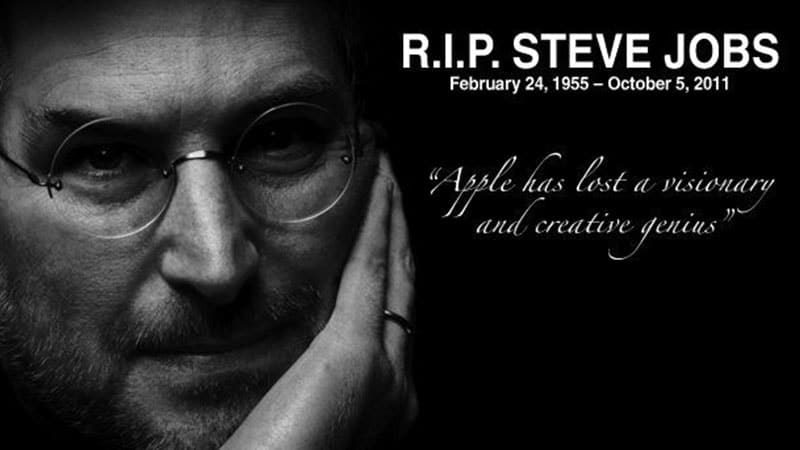
Source: Yahoo.com
This is the end of Steve Jobs' journey which is also the end of this biography. He died on October 5, 2011 of neuroendocrine pancreatic cancer. Yes, less than two months after his resignation as CEO of Apple.
He is survived by Laurene Powell and their three sons and daughter and Lisa Brennan-Jobs, the daughter of his love with Chrisann Brennan. The news of the death of Steve Jobs at that time really shocked the public until a number of major newspapers reported about his death on the front page.
Not only that, a number of world figures also gave statements to respond to the death of Steve Jobs. Some of them, namely United States President Barack Obama, Bill Gates of Microsoft, and Bob Iger of The Walt Disney Company.
Lessons Learned from Steve Jobs' Biography
That was the profile and biography of Steve Jobs that presents the story of the journey of the founder of Apple, Inc. complete, starting from his personal life, career, to the last moments of his life. Are you satisfied with the dish above?
There are many lessons to be learned from this Steve Jobs biography. One of them, you come to understand that there is no instant success. You have to go up and down first if you want to be a great person.
Not only that, by reading Steve Jobs' biography above, you can understand that no human being in his life always feels happiness. Because it turns out, great people like Steve have experienced difficult times that made him slump.
Well, that's the life story of Steve Jobs.
if there is a writing error or the source of what I show, I personally apologize profusely.
Thank you.
